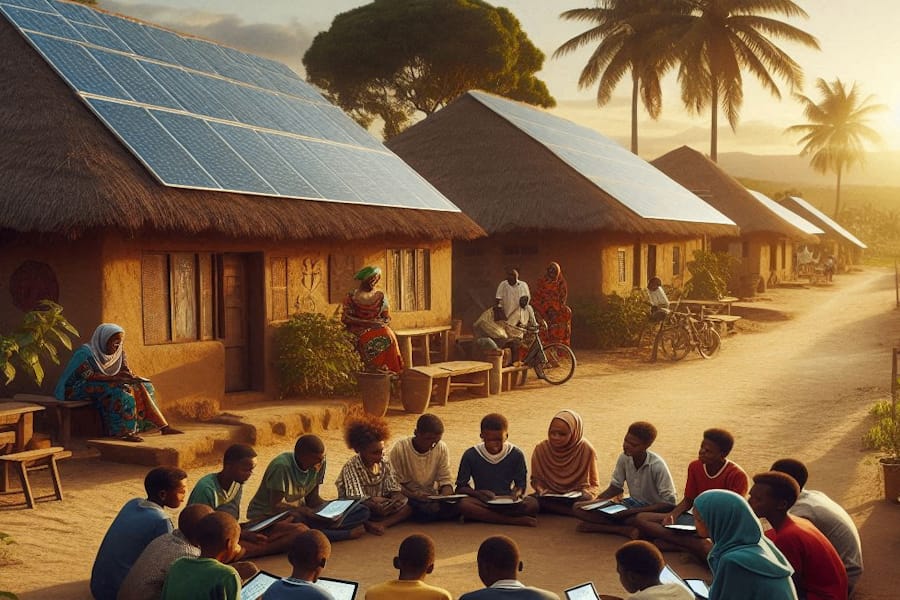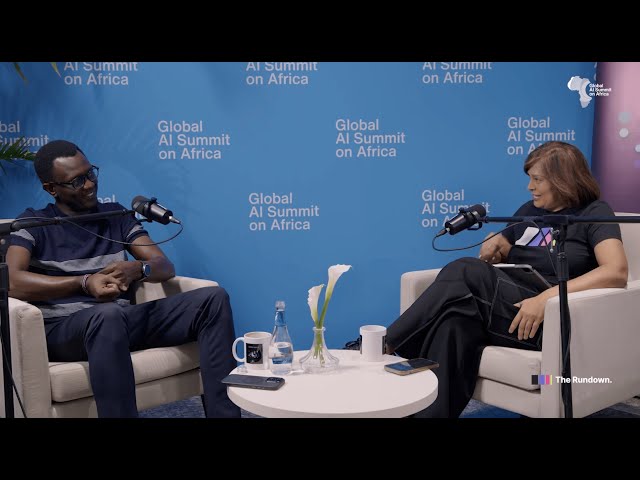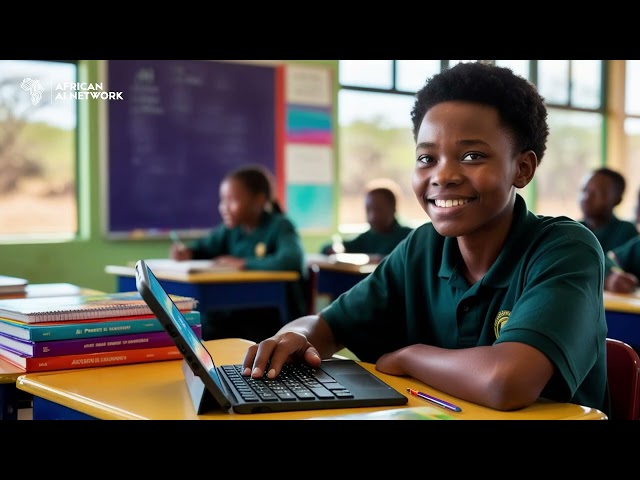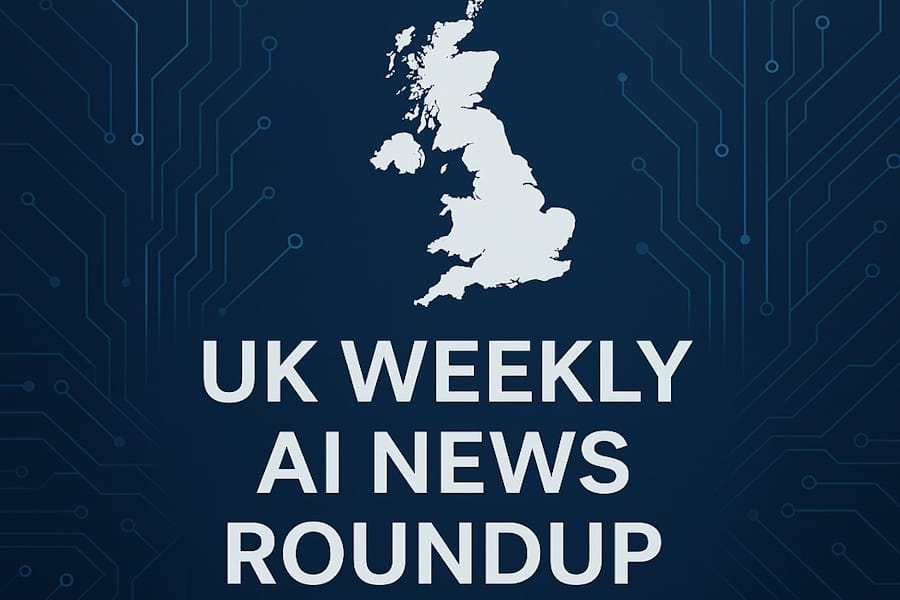AI Empowers Education in Developing Nations with Smart Tablets and Solar Power

Publish Date: Last Updated: 21st June 2025
Author: nick smith- With the help of GROK3
In the remote villages of Sub-Saharan Africa and rural pockets of South Asia, a quiet revolution is unfolding. Artificial Intelligence (AI) is transforming education for millions of children in developing countries, bridging gaps that traditional systems have long struggled to close. Through AI-powered teachers, self-learning platforms, affordable tablets, and renewable energy, children are gaining access to personalized education like never before. This innovative approach promises to empower a generation, but it also comes with challenges that must be addressed to ensure equitable impact.
The Power of AI Teachers and Self-Learning
AI-driven educational tools, such as intelligent tutoring systems and adaptive learning platforms, are redefining how children learn in resource-scarce environments. These systems, like ALEKS or ChatGPT-powered apps, tailor content to each student’s needs, adjusting difficulty and pace based on real-time performance. For instance, a child in rural Rwanda can now access math lessons customized to their skill level, with immediate feedback and guidance, even without a trained teacher nearby. A UNESCO study highlights that such AI tutoring systems significantly improve learning outcomes, offering hope for regions where teacher shortages are acute.
Self-learning platforms further empower children to take charge of their education. Tools like Google’s Teachable Machine and ReadyAI enable kids to explore subjects like science and coding interactively, fostering curiosity and critical thinking. These platforms are particularly effective in areas with limited school infrastructure, as they function offline on low-cost devices, making education accessible even during school closures. UNICEF notes that AI can support personalized learning on shared devices, ensuring that even marginalized communities benefit.
Cheap Tablets: The Key to Digital Access
In today’s interconnected world, providing a child with a cheap tablet that can access the internet is no longer a luxury—it’s a necessity. Tablets, costing as little as $50, serve as gateways to a vast digital library of knowledge, far surpassing the scope of traditional textbooks. Unlike books, which are expensive to ship, prone to damage, and quickly outdated, tablets can store thousands of resources, receive real-time updates, and support multimedia learning. A World Bank report underscores that 95% of the global population lives within mobile internet coverage, making tablet-based education feasible even in remote areas.
The internet connectivity of tablets also connects children to global communities, exposing them to diverse perspectives and opportunities. For example, a child in rural India can access free online courses from platforms like Khan Academy or collaborate with peers via virtual forums. This connectivity is critical for developing 21st-century skills like digital literacy and problem-solving, which are essential for future employability. UNICEF’s research reveals a stark gender digital divide, with only 65 female youth possessing digital skills for every 100 male youth, underscoring the urgency of equipping all children with tablets to close such gaps.
Renewable Power: Sustaining the Digital Classroom
In regions where electricity is unreliable, renewable energy solutions like solar-powered charging stations are game-changers. Initiatives like Rwanda’s AI pilot project, which integrates solar power with AI educational apps, demonstrate how sustainable energy can support continuous learning. Solar panels, paired with low-energy tablets, ensure that children in off-grid communities can study without interruption. The World Bank emphasizes that post-pandemic policies in 85% of countries focus on improving connectivity, with renewable energy playing a pivotal role in powering digital education.
Benefits of the AI-Driven Approach
-
Personalized Learning: AI tailors education to individual needs, improving engagement and outcomes. For children with disabilities, AI tools like voice recognition and text-to-sign language automation enhance accessibility.
-
Scalability: AI solutions can reach millions at low cost, addressing teacher shortages and overcrowded classrooms. A single tablet can serve multiple students, maximizing resources.
-
Empowering Teachers: AI automates administrative tasks like grading, freeing teachers to focus on mentorship. Tools like TeachFX provide feedback to improve teaching practices, amplifying impact.
-
Resilience: Offline-capable AI apps ensure learning continues during crises, such as school closures or natural disasters.
Weaknesses and Challenges
Despite its promise, the AI-driven approach faces hurdles:
-
Digital Divide: High connection costs and limited infrastructure hinder access in some regions. The World Bank notes that technology may amplify inequalities if not addressed.
-
Teacher Training: Many educators lack AI literacy, limiting effective integration. A study in Northern Cyprus found no significant difference in AI awareness between teachers using AI and those not, highlighting training gaps.
-
Ethical Concerns: AI risks privacy breaches and biases if not responsibly managed. UNESCO emphasizes the need for ethical guidelines to protect students.
-
Dependency Risks: Overreliance on AI could undermine critical thinking or social skills if not balanced with human interaction.
The Role of Books in a Digital Age
While tablets are transformative, books retain value for their tactile engagement and lack of screen-time concerns. However, their high shipping costs, fragility, and rapid obsolescence make them less practical in developing countries. Digital libraries on tablets offer a cost-effective, durable alternative, providing access to updated content without logistical challenges. Still, blending physical books with digital tools can create a balanced learning environment, especially for young readers.
A Path Forward
The integration of AI teachers, self-learning platforms, cheap tablets, and renewable power holds immense potential to empower children in developing countries. Pilot projects, like Rwanda’s AI initiative, serve as beacons of hope, demonstrating tangible improvements in learning outcomes. To maximize impact, governments, NGOs, and tech companies must collaborate to reduce connectivity costs, train teachers, and develop ethical AI frameworks. As Nelson Mandela said, “Education is the most powerful weapon which you can use to change the world.” With AI, that weapon is now within reach for millions, promising a brighter, more equitable future.
References:
-
UNESCO, AI in Education, 2019.
-
UNICEF, AI and Education, 2023.
-
World Bank, AI and Education in Latin America, 2024.
-
Northern Cyprus AI Study, PMC, 2023.
-
Rwanda AI Pilot Project, Medium, 2024.
YouTube Articles

The Founder Behind Scholly & Path Talks AI in Education | AFROTECH | Black Tech Green Money Podcast
YouTube Channel: Blavity TV

Beyond the Classroom: How AI is Reshaping African Education
YouTube Channel: The Rundown

No teachers, no homework: School solely uses AI to teach students
YouTube Channel: TODAY

AI: Empowering Africa's Future - Education Edition
YouTube Channel: African AI Network TV
More great AI News Articles
AI Questions and Answers section for AI Empowers Education in Developing Nations with Smart Tablets and Solar Power
Welcome to a new feature where you can interact with our AI called Jeannie. You can ask her anything relating to this article. If this feature is available, you should see a small genie lamp above this text. Click on the lamp to start a chat or view the following questions that Jeannie has answered relating to AI Empowers Education in Developing Nations with Smart Tablets and Solar Power.
Be the first to ask our Jeannie AI a question about this article
Look for the gold latern at the bottom right of your screen and click on it to enable Jeannie AI Chat.






